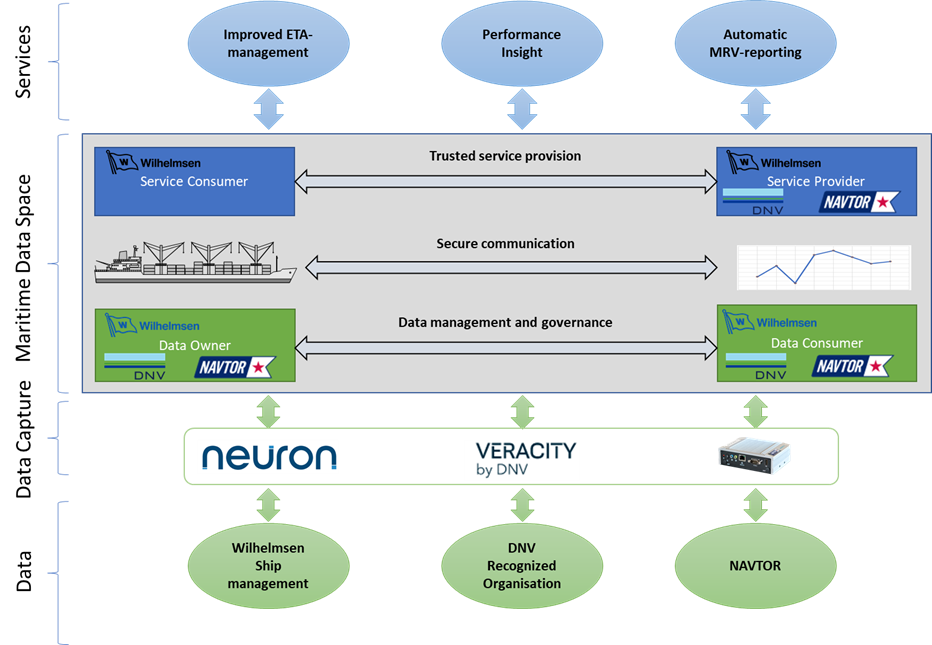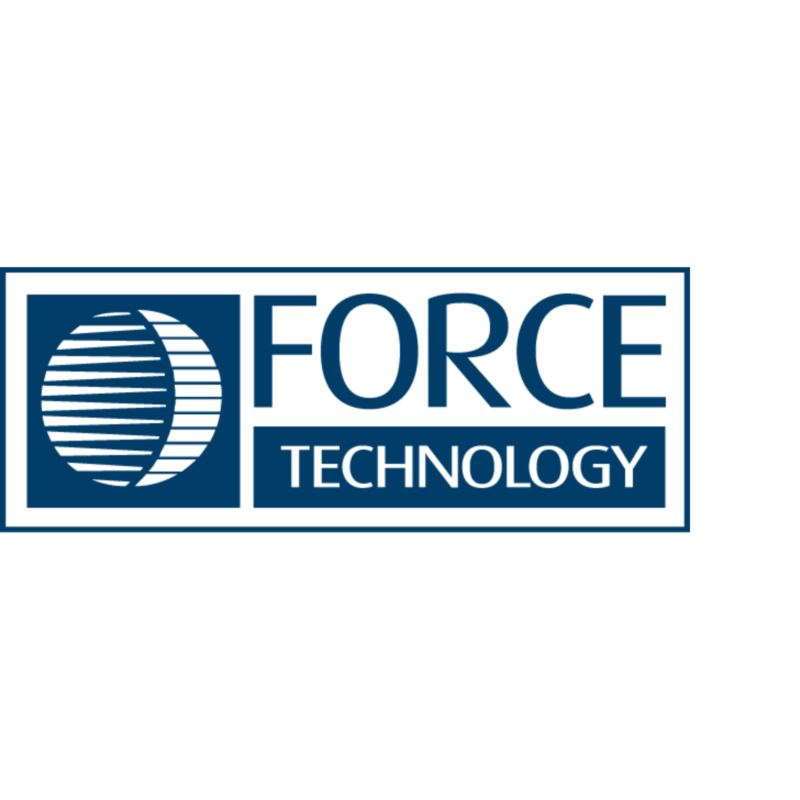A challenge for a faster uptake in the utilization and sharing of data in an industrial context is the lack of trust in data and its’ sharing mechanisms. To counter the problem, the International Data Space Association (IDSA) has developed an architecture aimed to set a standard for exchanging data on a trustworthy and self-regulated basis. This forms the basis for the Maritime Data Space project.
A federated space for emissions reporting
Utilizing IDS architecture and the two platforms, the project has succeeded in creating a federated space, where the platforms can share data securely, robustly, and efficiently.
Since its start in 2019, the project has successfully delivered a proof-of-concept that demonstrates:
- transparent access to vessel related data from anywhere onboard or ashore, while securing proper governance of access by the data owners;
- automated, secure, robust, and efficient communication between ship and shore;
- digitalization and simplification of the provision of trusted services for day-to- day vessel operations.
Enable platform-to-platform data exchange
In Veracity, trust in data and in its’ governance is a central factor, and the platform provider has in the project been able to deeper explore the IDS architecture and the use-cases it may open for. “For Veracity, there are two main benefits from the project” says Torstein Kongshem, Head of Distribution Channels in Veracity. “Firstly, it opens possibilities for cross-platform data sharing, making locked-in data silos a thing of the past for industry customers. Secondly, when connecting to industry data spaces, using the internationally acclaimed standard that IDS represents, we ensure there is a predefined governance structure. With this, we can step into the roles where we can offer valuable services as a platform in the maritime- and other industry data spaces.”

The road ahead
As a continuation of the results achieved in the Maritime Data Space project, SINTEF in collaboration with International Data Spaces Association (IDSA) will establish a regional IDSA Hub in Norway. This concept is part of a larger strategic approach to scale up the IDSA principles internationally. The Norwegian IDSA Hub will promote adoption of state-of-the-art data sharing technology based on IDSA standards by building strong networks between research organizations and industry partners both in Norway and internationally.
SINTEF is currently in the process of inviting core industrial business partners that will be members of the initial setup of the Norwegian IDSA Hub. In near future, SINTEF is looking forward to expanding this network to become an innovation platform where members from industry and research will meet and push digitalization in various sectors forward by building effective and secure solutions for data sharing.









